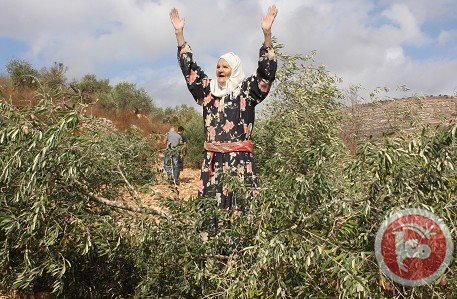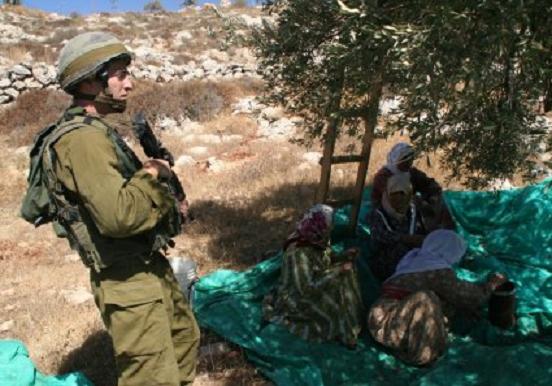Tag: Olive harvest
-
Palestinians banned from land as Route 60 expands
17th november 2015 | International Solidarity Movement, Huwwara team | Burin, occupied Palestine On monday morning, Mahmoud Yasser Eid, a 22 year-old palestinian from the village of Burin, was stopped by the Israeli forces as he went to pick olives with his mother, near the Huwwara checkpoint. The land, that the family has been harvesting…
-
Israeli settlers sabotage the olive harvest in Awarta
23rd September 2014 | International Solidarity Movement | Awarta, Occupied Palestine On the 28th of August, around 7:00 a.m., Israeli settlers from the illegal settlement of Itamar cut down and burnt more than 30 olive trees belonging to Awarta village before the harvest. For the farmers living southeast of Nablus City, the olive trees are a basic,…
-
Call to action: Join ISM for the 2013 Olive Harvest Campaign
22nd August 2013 | International Solidarity Movement | Occupied West Bank At a time of regular settler violence in the West Bank, the International Solidarity Movement (ISM) is issuing an urgent call for volunteers to join us for the 2013 Olive Harvest Campaign at the invitation of Palestinian communities. The olive tree is a national symbol for…



